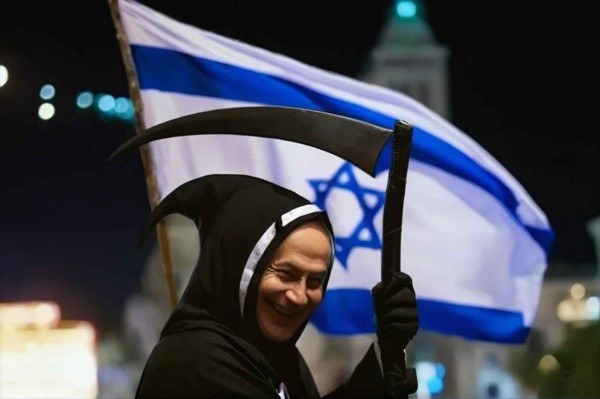Iran’s Plan to Strike Back Against the U.S.
Iran’s Military Preparations Following U.S. Attacks
Loading...

The protests and Israel’s first national strike since October 7 represent the latest challenge to the Israeli prime minister. What matters is what he does next, say analysts.
A Nation at Odds Over Government Policies and Military Strategy
Israel has recently seen a surge in public unrest, with nationwide protests and a significant labor strike marking a critical moment for Prime Minister Benjamin Netanyahu. The discontent is fueled by the deaths of six captives in Gaza, whose bodies were recovered by the Israeli military nearly 11 months after being taken by Hamas during the October 7 attacks. Netanyahu's government is under intense scrutiny for failing to secure a ceasefire and negotiate the release of captives, with protesters blaming the administration for its handling of the conflict.
Public Outcry and Government Accountability
The discovery of the captives' bodies has unleashed a wave of anger across Israel, as approximately 300,000 citizens took to the streets. Demonstrators criticized Netanyahu's administration for its inability to broker a ceasefire in Gaza, where more than 40,700 Palestinians have died amidst ongoing military operations. Senior Hamas official Izzat al-Risheq claimed the captives died in Israeli air strikes, contrasting Netanyahu's assertion that Hamas is responsible for their deaths. Meanwhile, Hamas has proposed releasing the captives in exchange for halting Israel's aggressive actions in Gaza and releasing Palestinian prisoners.
Economic Standstill and Labor Union Response
In a bold move, Israel's main labor union initiated a strike, halting economic activity nationwide for several hours before a labor court ordered a return to work. This action, the first of its kind since the October 7 attacks, underscores the growing domestic dissatisfaction with Netanyahu's leadership. Analysts debate whether these protests and strikes will have a lasting impact, with former Israeli ambassador Alon Pinkas suggesting the situation's sustainability is key to its political significance.
The Complexity of War and Political Ramifications
The conflict has escalated since Hamas and other Palestinian factions launched a surprise attack on October 7, resulting in the deaths of 1,139 people in Israel and the capture of around 240 others. As Israel's military endeavors in Gaza continue, the International Court of Justice examines allegations of genocide, and the International Criminal Court seeks arrest warrants for Netanyahu and his Defense Minister Yoav Gallant, alongside two Hamas leaders. Netanyahu's reluctance to agree to ceasefire terms and his insistence on keeping military footholds within Gaza have further hindered negotiations for peace and the release of captives.
Internal Criticism and Political Survival
Netanyahu's strategy of prioritizing military operations over negotiations has faced mounting criticism within Israel, particularly following the tragic recovery of the six captives' bodies. Political analysts argue that Netanyahu's government is now on the defensive, as the public demands a change in approach. Protests against Netanyahu have historical roots, dating back to his controversial judicial reforms in 2023, which many perceived as efforts to evade corruption charges.
The Challenge of Leadership and Future Prospects
Despite his declining popularity among certain demographics, Netanyahu remains a formidable political figure, still ahead of his main rival Benny Gantz in polls. His alliance with far-right ministers like Itamar Ben-Gvir and Bezalel Smotrich has been a double-edged sword, offering support but also drawing criticism. In response to the captives' deaths, Ben-Gvir advocated for expanded settlements in Gaza, a stance aligning with Netanyahu's strategy but exacerbating tensions.
A Nation on the Brink of Change
As Netanyahu navigates these turbulent waters, the political landscape appears increasingly volatile. Defense Minister Gallant and opposition leader Yair Lapid have begun to voice dissent, indicating a potential shift in the political tide. Analysts like Elia Ayoub suggest that Netanyahu's instinct will be to double down on his current strategies. However, the mounting internal pressure and public demand for change may prove pivotal in shaping Israel's future political trajectory. Whether Netanyahu will adapt or maintain his course remains a decisive question for the nation's stability and governance.
Editor
Iran’s Military Preparations Following U.S. Attacks
Troops remain in five strategic locations, raising fears of renewed tensions and long-term occupation.
Opposition forces have taken control of the capital after a significant offensive. Here is how it unravelled.
